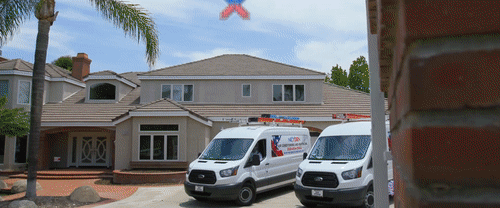Is Your Landlord Responsible for Your AC?

During sweltering summer days air conditioning can seem like it is a necessity. While a good air conditioner can make your rental unit a much more comfortable place to be during the summer is it legally required in California?
Habitability Requirements
Rental houses and apartments in California must comply with habitability requirements. This includes having plumbing, heating, electrical, and gas systems in good working order. A cooling unit isn’t listed as a requirement of habitability, so a landlord does not have to provide one. The rental unit must receive adequate ventilation, however.
Unless a fan or other type of ventilation system is installed in the rental unit, most rooms require a window. The minimum window size usually measures 20 inches by 24 inches and the window must open at least halfway.
Ask About The Cooling System
Even though landlords don’t face a requirement to provide an air conditioner in a rental house or apartment, many landlords provide a cooling unit to increase the desirability of the property. In some areas of California with low humidity, landlords install an evaporative or swamp cooler to meet cooling needs. Tenants should ask about the availability of a working cooling system before they decide to rent the house or apartment.
Who Is Responsible When
If the landlord provided an operable air conditioning system in the rental house or apartment when the tenants moved in, the tenants can expect the landlord to maintain the air conditioning system, keeping it in good working order. If the system stops working through no fault of the tenants, the landlord is responsible for repairing or replacing the air conditioning system. On the other hand, if the tenants caused the failure of the air conditioning system, they pay the cost of AC repair.
A phone call followed by a written statement notifies the landlord of a non-functioning air conditioning system. You then must give the landlord a reasonable period – around 14 days to a month – to make the repairs. If the landlord refuses to fix your broken air conditioning unit, you may consider using the “repair and deduct” remedy. With this remedy, you pay to fix the air conditioner and deduct the cost from the rent. However, the repair cost can’t exceed one month’s rent and you can only use this remedy once a year.
Now while this may not sound like good news exactly it is also not the worst news. If your landlord had an air conditioning system installed and working at the time you moved in it is their responsibility to maintain it. As it is not legally required however it would be in a renter’s best interest to make sure that there is a functioning air conditioning system even when moving in in the winter time.
It is simple enough to check and only takes a few minutes. Have someone with you when looking at the property turn the thermostat to cooling mode and see if the outdoor condensing unit comes on and runs relatively quietly listen for vibration specifically which could indicate a problem. Within a few minutes, cool air should come out of the vents, this would indicate that the air conditioning was in “working order” upon your move-in date.
Call NexGen Today
Our expertise and commitment to customer satisfaction make us the leading HVAC company in Southern California. To learn more about our equipment, services, and protection plan,
book an appointment online or call
888-277-0415.









